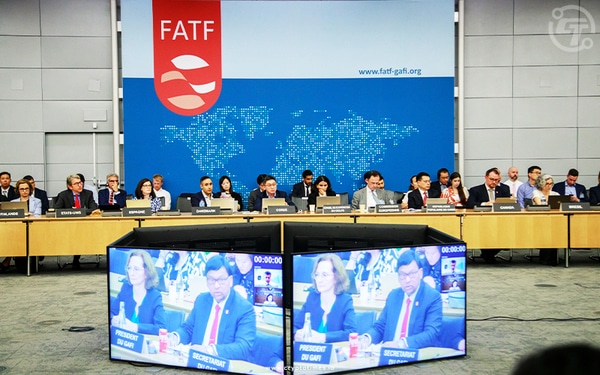The Financial Action Task Force (FATF), an organization under the United Nations, has reiterated its appeal to nations worldwide to adopt the “travel rule” as part of their efforts to combat the illicit activities of money laundering and terrorism financing that involve cryptocurrencies.
In a recent development, the United Nations entity responsible for addressing the issues of money laundering and terrorist financing expressed its concern over the lack of implementation of the “travel rule” by numerous member states. This announcement follows a series of meetings held by the organization at its headquarters in Paris.
According to FATF, a significant number of survey respondents constituting “more than half,” admitted to not having undertaken any measure to implement the aforementioned rule. “More than half of survey respondents have not taken any steps towards implementing the Travel Rule, a key FATF requirement to prevent funds being transferred to sanctioned individuals or entities.”
The FATF called upon nations to promptly adopt measures against money laundering and terrorism financing in relation to activities involving cryptocurrencies, with the aim of thwarting criminals who could take advantage of unregulated areas that present significant vulnerabilities.
As per a survey conducted by the FATF in March 2022, it was discovered that out of 98 jurisdictions evaluated, only 29 had met the necessary criteria outlined in the travel rules. Furthermore, a limited number of these jurisdictions had commenced enforcement efforts.
The FATF travel rule was established with the objective of addressing the anonymity associated with illicit cryptocurrency transactions. It was initially introduced in June 2019 and underwent its latest revision in June 2022. During the meetings, FATF members reached an agreement to update the rules further.
On June 27, the FATF announced its intention to release a report that emphasizes the importance of member countries adhering to its recommendations. The objective of implementing these recommendations is to effectively address and eliminate the existing vulnerabilities that criminals seek to exploit.
In its forthcoming report, the FATF will highlight the illicit virtual asset activities conducted by North Korea, which allegedly involves channeling stolen funds into its Weapons of Mass Destruction program.
Additionally, the report will delve into the examination of other “emerging risks” such as stablecoins, decentralized finance, non-fungible tokens, and peer-to-peer transactions, shedding light on their illicit activities.
Also Read: FATF Chief Urges G-7 to Tackle Lawless Crypto Space






